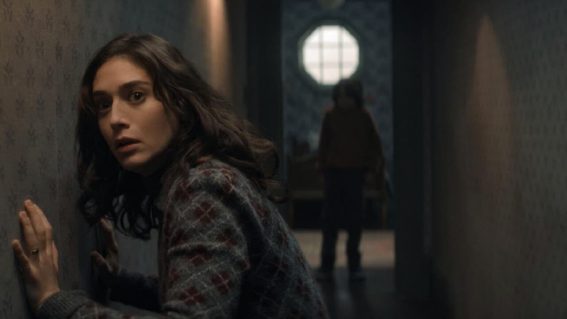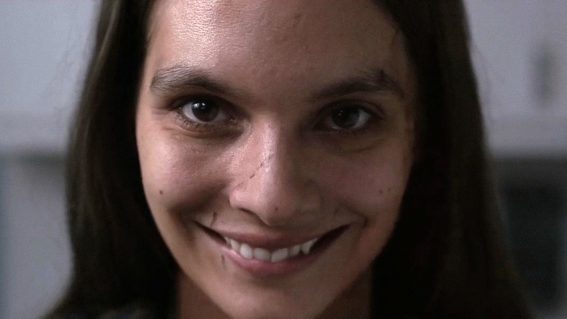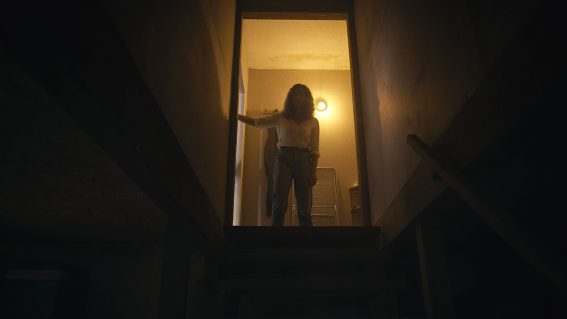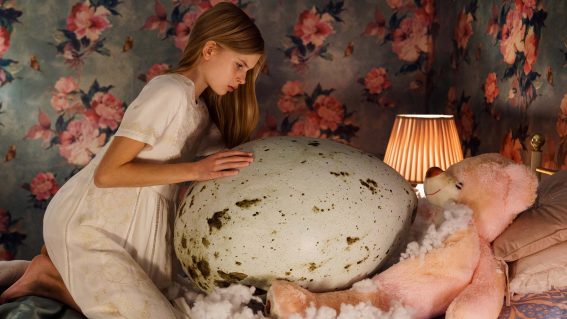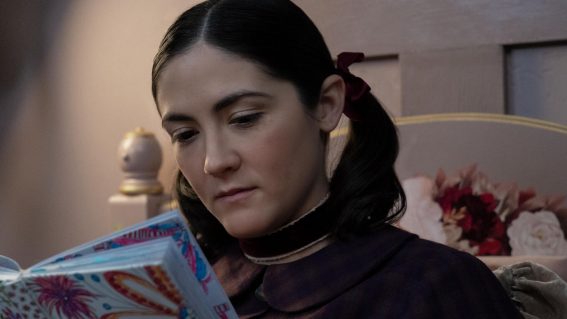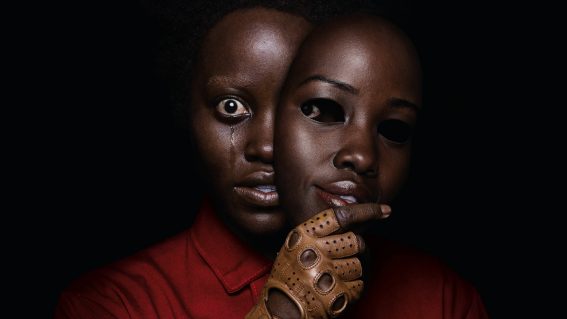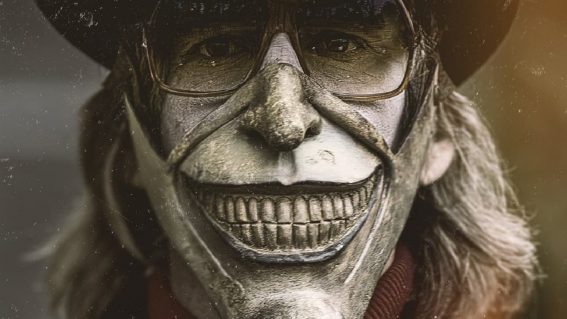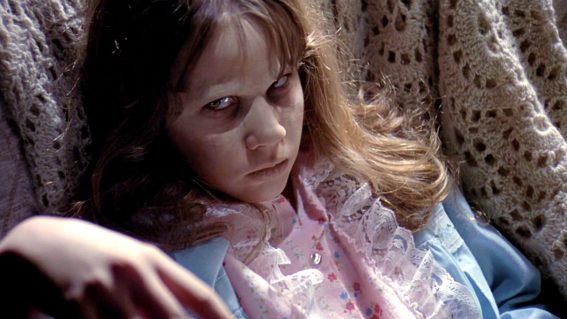The horrors of A Banquet aren’t possession: just empty, paralysing darkness
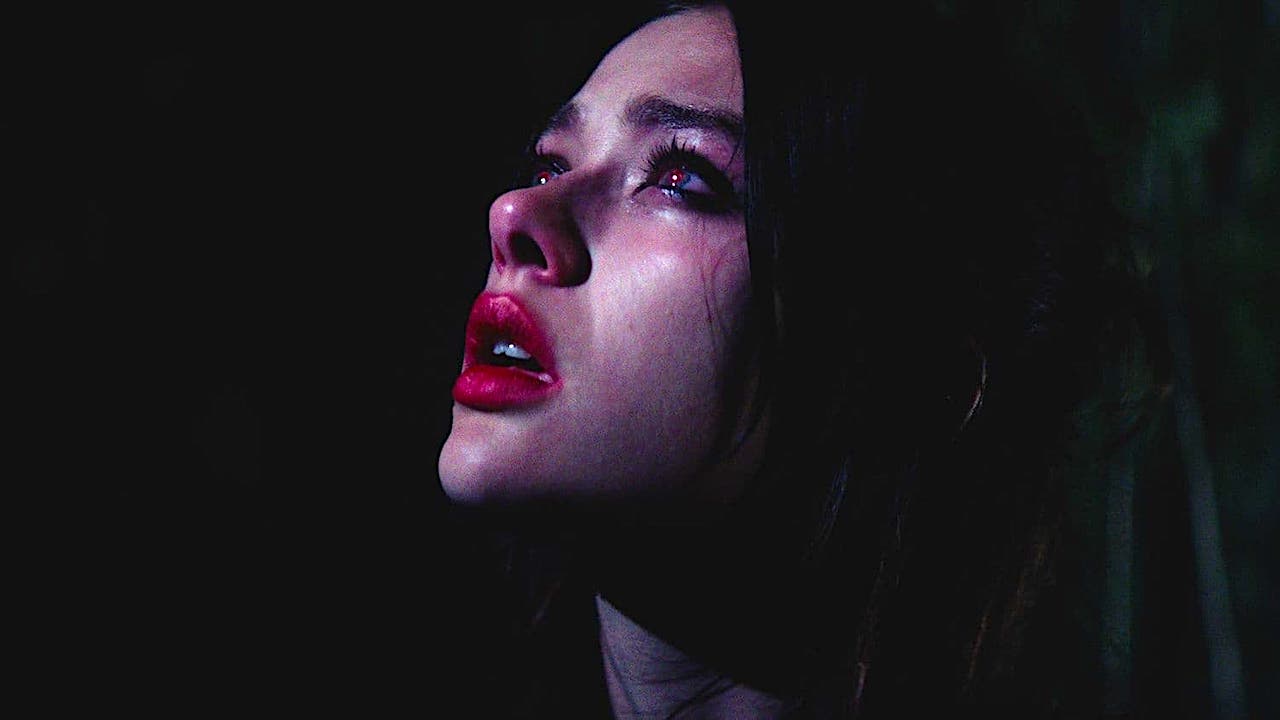
Not quite body horror, not quite a possession movie: Matt Glasby still found something striking in the glassy surfaces and “aimless dread” of A Banquet.
UK horror is undergoing a renaissance right now, and films by young female directors are leading the way. The likes of Saint Maud (Rose Glass), Amulet (Romola Garai) and Censor (Prano Bailey-Bond) are character-based efforts focusing on anxieties of identity and conjuring scares from oppressive moods, rather than out-and-out monsters.
Directed by first-timer Ruth Paxton from a script by Justin Bull, A Banquet follows in the same footsteps. It begins in a sterile-seeming room that could be a modernist flat or a futuristic hospital. In fact, it’s the home of Holly (Sienna Guillory, Fortitude) and her family. Tending to her sick husband (Richard Keep), Holly wears a deep-red cardigan that stands out starkly against the black walls—let’s call the shade God Is Dead by Farrow & Ball.
When he drinks something he shouldn’t and starts coughing up blood, she can do nothing to save him—a scene that will, no doubt, be triggering for those who have lost loved ones to COVID. The camera pulls back to reveal their teenaged daughter, Betsey (Jessica Alexander, from the forthcoming Little Mermaid remake) looking on in horror. Next, the words “A Banquet” appear across the screen—a mordant moment in a film not over-burdened with levity.
Time passes, and while the family, including youngest daughter Isabelle (Ruby Stokes, Bridgerton), try to process daddy’s death, we focus in on Betsey. At a party with her boyfriend Dominic (Kaien Zajaz, The Witcher), she wanders off into the woods under a blood-red moon, starts hearing voices, then collapses. No wonder really, when they’re playing This Time, Modeselector’s 2011 techno panic attack. When Betsey comes around, she’s a changed woman.
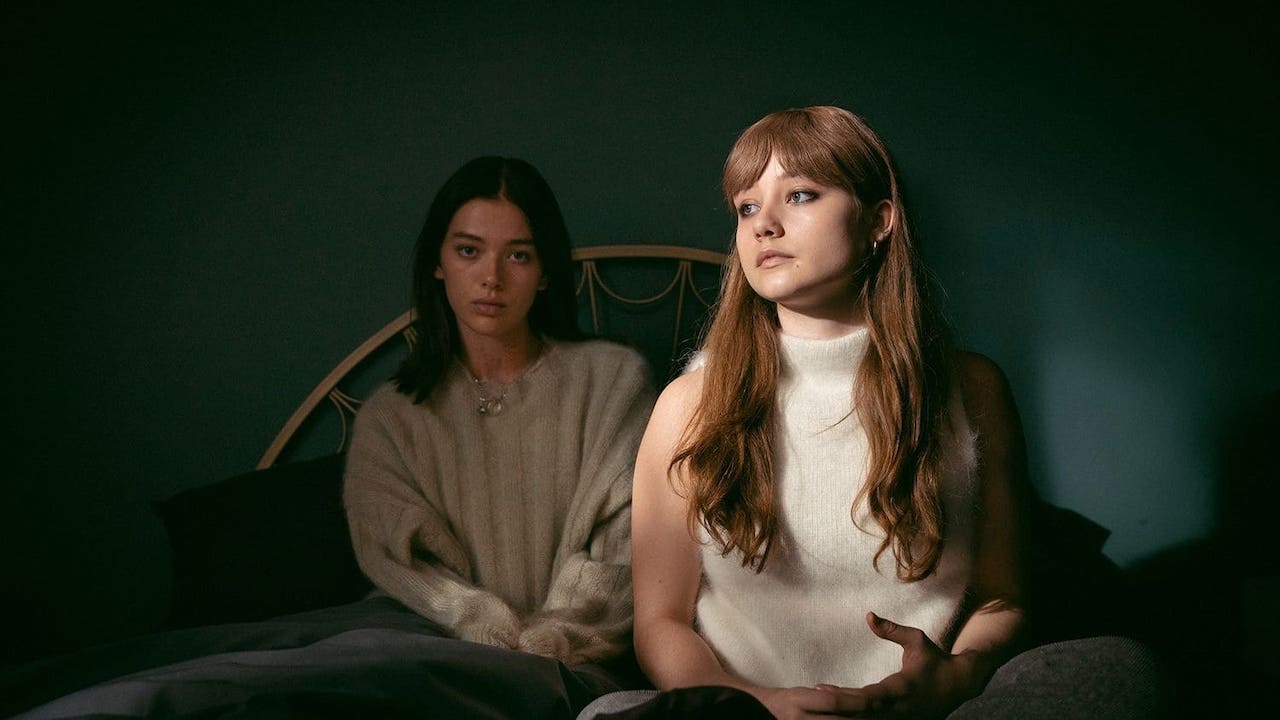
She refuses to eat anything at all, even the solitary pea Holly puts on her plate, which causes her to choke like her father. Thanks to the geysers of puke featured in The Exorcist, peas have a notable place in horror history. But Betsey isn’t so much possessed as paralysed by the pointlessness of existence, like the pedestrians in Radiohead’s Just video, who lie down in defeat when they are told a whispered secret. “I can feel what’s coming—it’s just darkness,” she says. And she’s not referring to the God Is Dead paint either.
What follows is difficult to characterise. It’s not really a possession movie and, while there are scenes of body horror you couldn’t call it that either. There are hints of the sins-of-the-mothers storyline told so chillingly in Hereditary, and the finale is eerily reminiscent of one of the works mentioned above. But mostly the film’s main currency is aimless dread, helped by CJ Mirra’s worrisome score, Sofio Stocco’s stark production design, and David Lidell’s gorgeous cinematography, all of which belie a modest budget.
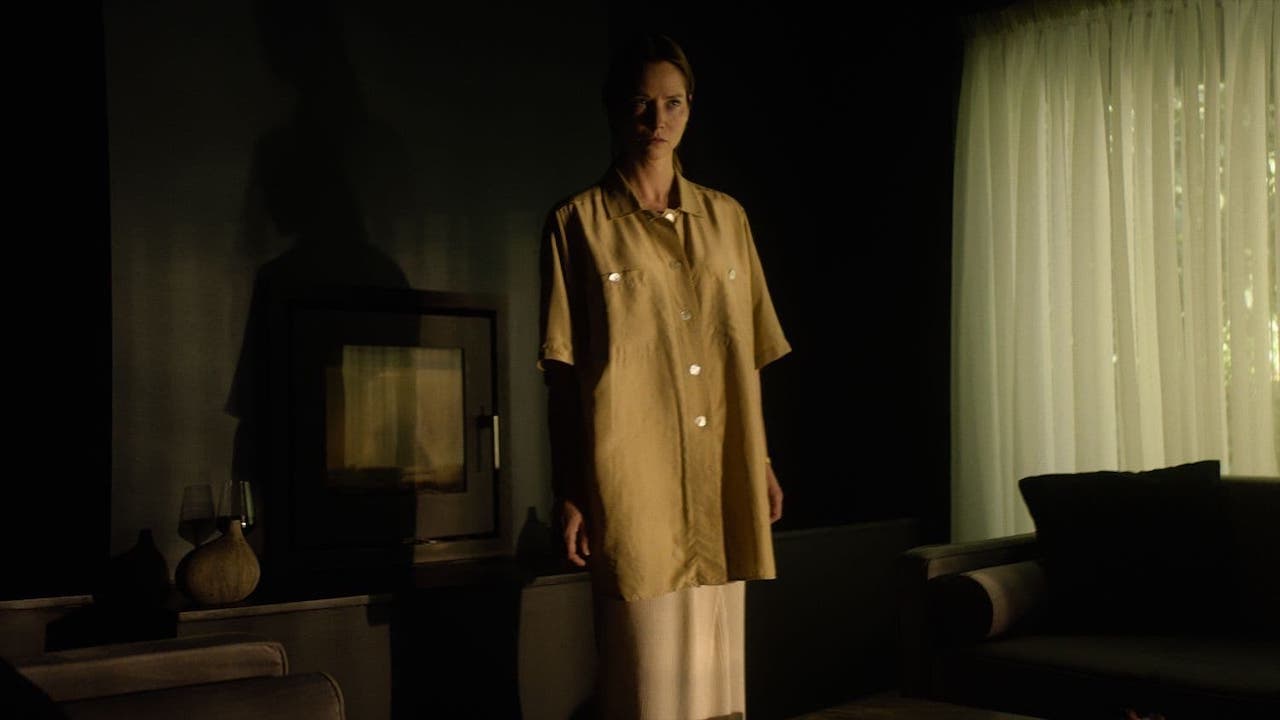
The performances are equally impressive. Guillory gives Holly a brittle quality, her eyes gazing off into the distance like a broken doll. One-to-watch Alexander makes Betsey’s mystery condition feel like a genuine affliction rather than just a function of the narrative. Meanwhile Lindsay Duncan almost steals the show as the family’s sinister grandmother June, a tough-talking matriarch with a ghost-white pallor.
Perhaps the film’s greatest achievement is how vividly it makes us experience Betsey’s eating disorder, depicting food as something alien: from the scarlet strips of bacon spitting in the pan to that solitary pea marooned on a deep black plate. This mirrors a wider disgust at the functions of the body. At one point we see Holly folding the end of a toilet roll into a boat shape (also, cleverly, a plot point), as if she can’t bear to contemplate its real use.
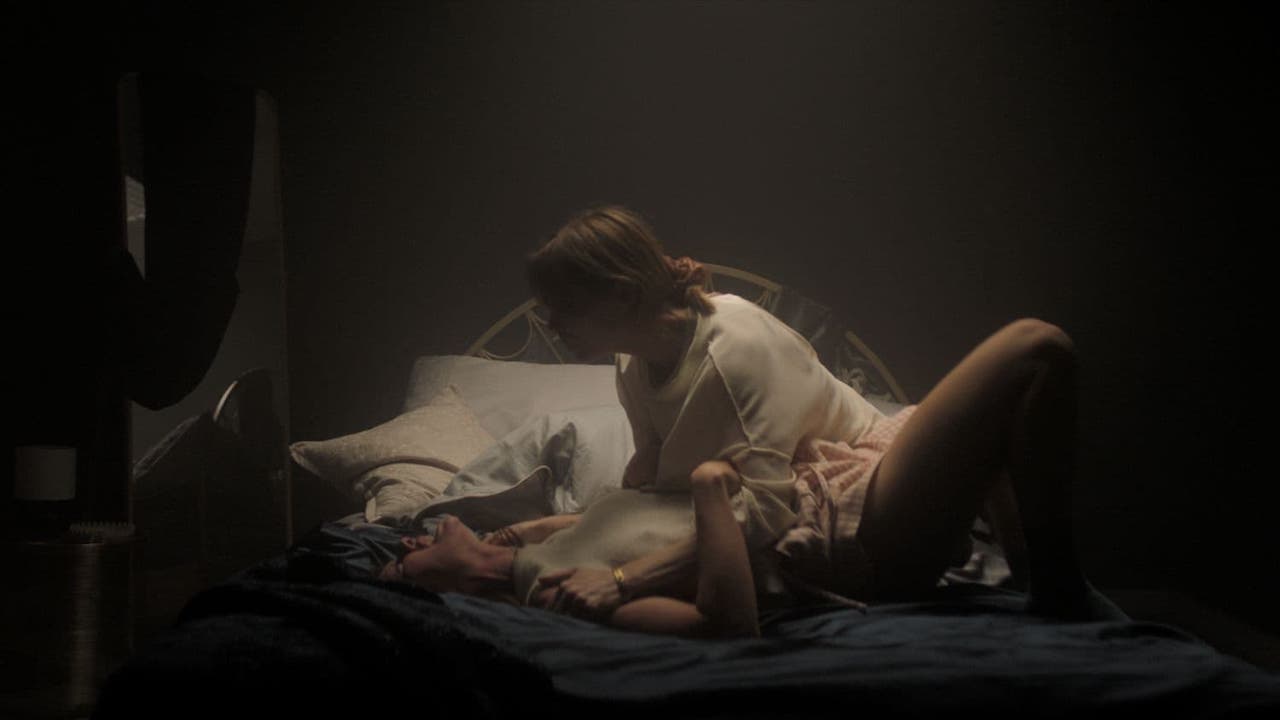
We also see Isobel chewing a chicken leg that drips blood on the floor; disorienting close-ups of chins and tongues getting acquainted with one another at the fateful party; and Holly’s nightmare which seems to have come straight from a David Cronenberg flick.
While all this is strange and compelling, it’s not entirely satisfying. There’s no real third act, just a beginning, some developments, then a coda: the narrative ebbs and flows deny us the usual pleasures of genre cinema, just as Betsey refuses herself sustenance. The result is a film of glassy surfaces—striking to contemplate, but shallower than it appears—and only reflecting blackness back at us.





